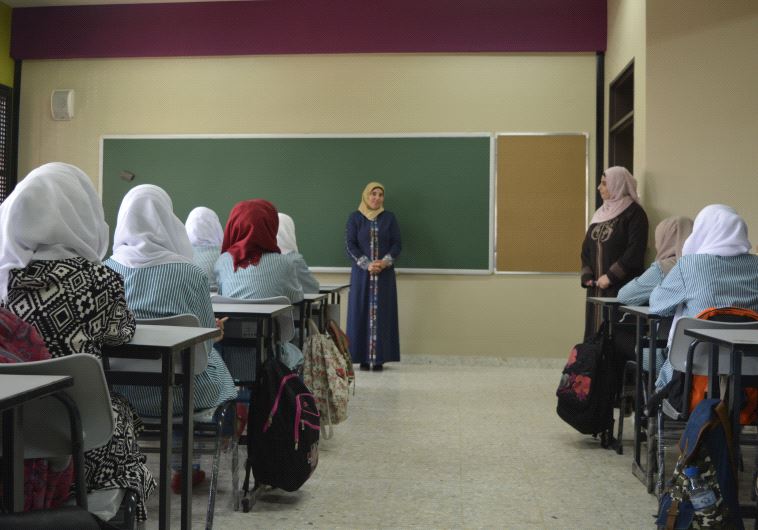First green school arrives in Palestinian town
“We want to have a proactive, on-the-ground impact in terms of providing the means to help Palestinians understand the problems of climate change.”
 Students in classroom at Aqqaba Secondary Girls' School.(photo credit: UDI SHAHAM)Updated:
Students in classroom at Aqqaba Secondary Girls' School.(photo credit: UDI SHAHAM)Updated: